In the ever-evolving landscape of nutrition, high-protein, low-carb diets have emerged as a formidable force, promising a multitude of health benefits. From facilitating weight loss to enhancing blood sugar regulation and mitigating heart disease risk factors, the merits of prioritizing protein-rich, low-carb foods are well-documented. This dietary approach not only appeals to those on a quest for a leaner physique but also to individuals seeking holistic well-being.
Fortunately, the culinary world abounds with a diverse array of delectable options that align seamlessly with the principles of high-protein, low-carb living. In this comprehensive exploration, we delve into the realm of nutrition, unveiling the 25 best high-protein, low-carb foods. From the humble egg, a nutritional powerhouse, to the exquisite flavors of Parmesan cheese, we navigate through a culinary journey that not only satiates the palate but also caters to the diverse nutritional needs of health-conscious individuals.
Embark with us on this journey through the realms of nutrient density, culinary versatility, and dietary wisdom as we unveil the secrets of a diet that emphasizes the best of both worlds – high protein and low carbs. These 25 foods are not just ingredients; they are the building blocks of a healthier, more vibrant lifestyle.
Discover Delicious Options to Boost Protein Intake and Support Your Health Goals!
Eggs: A Nutrient-Dense Powerhouse

Eggs are a staple in many diets and are renowned for their nutrient density. Packed with essential nutrients like B12, selenium, and vitamin A, eggs are an excellent choice for those following a low-carb, high-protein diet. With just 71.5 calories per large egg, less than 1 gram of carbs, and 6.28 grams of protein, starting your day with eggs provides a satisfying and nutritious foundation.
Canned Salmon: Omega-3 Rich Protein

Canned salmon stands out as a carb-free, high-protein option that goes beyond its protein content. With 117 calories per 3-ounce serving, 0 grams of carbs, and 19.6 grams of protein, it also delivers essential omega-3 fats like DHA and EPA. These fats play crucial roles in regulating inflammation and supporting immune function, making canned salmon a holistic choice for a healthy diet.
Cheddar Cheese: Low-Carb Dairy Delight

Cheddar cheese, and many other cheeses, are not only low in carbs but also rich in protein, fat, calcium, and zinc. With 115 calories per ounce, less than 1 gram of carbs, and 6.78 grams of protein, cheddar cheese can be enjoyed as a snack or added to low-carb meals, providing a flavorful boost to your diet.
Whey Protein Isolate: Convenient Protein Boost

For a convenient protein boost, whey protein isolate is an excellent choice for those on low-carb, high-protein diets. With 100 calories per 30-gram serving, 0 grams of carbs, and 25 grams of protein, this highly bioavailable protein powder can be added to meals and snacks without increasing carb intake. Opt for unsweetened or monk fruit sweetened options to keep the carb count low.
Cottage Cheese: Versatile Dairy Goodness

Cottage cheese is a versatile dairy product that can serve as a high-protein, lower-carb snack or a nutrition booster in recipes. With 183 calories per cup, 10.8 grams of carbs, and 23.5 grams of protein, cottage cheese is not only rich in B12 and selenium but also contributes to thyroid function and acts as a powerful antioxidant.
Turkey Sticks: On-the-Go Protein Power
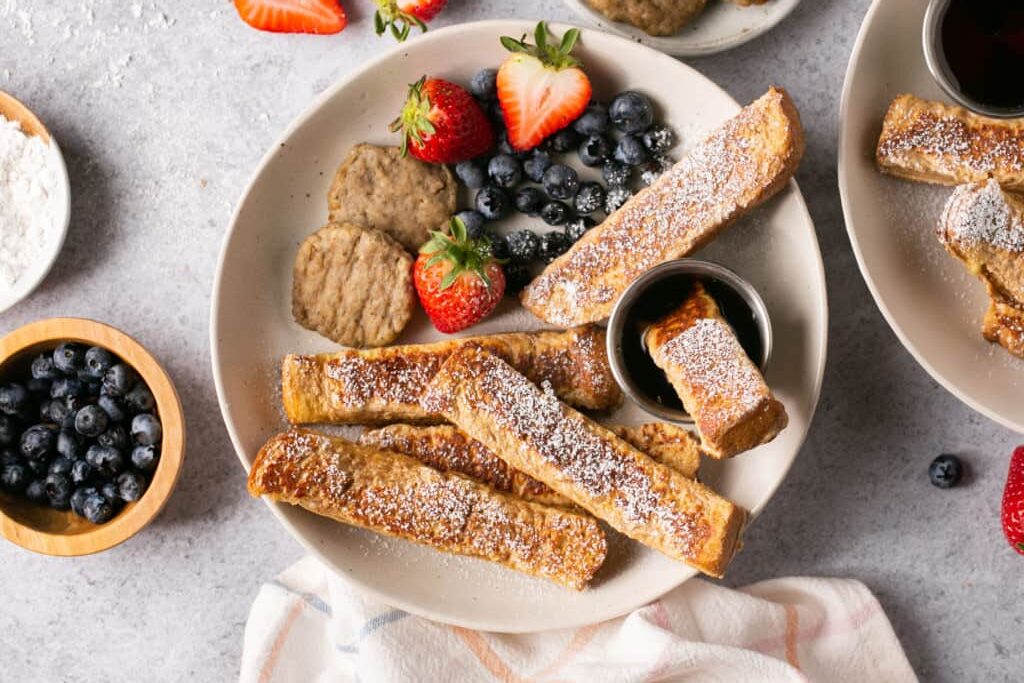
For a convenient on-the-go snack, pre-packaged turkey sticks like Chomps Free Range Turkey Sticks are a smart choice. With 60 calories per stick, 0 grams of carbs, and 10 grams of protein, these shelf-stable options ensure you always have a filling, low-carb snack within arm’s reach.
Canned Tuna: Quick and Zero-Carb

Canned tuna is a quick and zero-carb protein option suitable for meals or snacks in low-carb diets. With 109 calories per 3-ounce serving, 0 grams of carbs, and 20.1 grams of protein, canned tuna is a pantry staple that provides a versatile base for various low-carb recipes.
Collagen Peptides: Skin, Bone, and Joint Support

Collagen peptides, with 70 calories per 20-gram serving, 0 grams of carbs, and 20 grams of protein, offer a unique way to boost protein content in both hot and cold beverages, as well as various recipes. Studies suggest that regular consumption of collagen peptides can promote skin, bone, and joint health, making it a valuable addition to your wellness routine.
Tofu: Low-Carb Plant-Based Protein

Tofu, a soy-derived product, is a low-carb, high-protein option for those following plant-based diets. With 78.2 calories per 3-ounce serving, 1.55 grams of carbs, and 8.67 grams of protein, tofu can be incorporated into sweet and savory dishes, providing essential nutrients like calcium, selenium, zinc, and iron.
Hemp Seeds: Nutrient-Rich Plant Protein
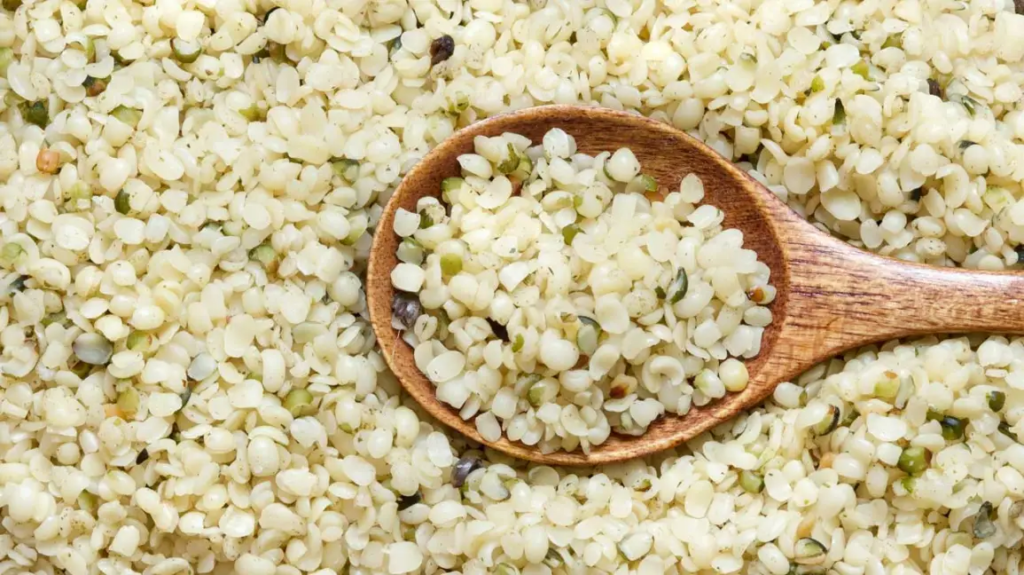
Hemp seeds are a nutrient-rich plant-based protein source that is low in carbs. With 166 calories per 30-gram serving, 2.6 grams of carbs, and 9.48 grams of protein, hemp seeds can be added to salads, smoothies, and various plant-based products like hemp milk and protein powder.
Pumpkin Seeds: Versatile and Nutrient-Dense

Pumpkin seeds, or pepitas, are not only delicious but also nutrient-dense. With 163 calories per ounce, 4.17 grams of carbs, and 8.45 grams of protein, these seeds provide an excellent source of magnesium, essential for regulating blood sugar, blood pressure, and stress.
Chicken Breast: Lean and Protein-Packed

Chicken breast is a popular, lean protein source with zero carbohydrates. With 105 calories per small skinless chicken breast and a whopping 31.1 grams of protein, it’s a versatile option for salads, soups, stir-fries, and various low-carb recipes.
Peanuts: Legume Powerhouse

Peanuts, despite being legumes, are low in carbs and packed with plant-based protein. With 162.8 calories per ounce, 4.48 grams of carbs, and 7.43 grams of protein, peanuts also boast cholesterol-lowering properties, making them a heart-healthy choice.
Kefir: Probiotic-Rich Protein

Kefir, a fermented yogurt drink, is high in protein and relatively low in carbs. With 104 calories per cup of low-fat, plain kefir, 11.6 grams of carbs, and 9.21 grams of protein, it provides probiotics that support digestive health. Enjoy it on its own or as a base for smoothies.
Shrimp: Seafood Protein Delight

Shrimp is a seafood option that enhances your protein intake while being very low in carbs. With 84.2 calories per 3-ounce serving, less than 1 gram of carbs, and 20.4 grams of protein, shrimp can be a delicious addition to salads, soups, stir-fries, and lettuce wraps.
Greek Yogurt: Protein-Packed Dairy Goodness

Greek yogurt stands out for its higher protein content compared to regular yogurt. With 146 calories per 7-ounce serving of low-fat, plain yogurt, 7.8 grams of carbs, and 19.9 grams of protein, it’s a satisfying snack and an excellent addition to soups and smoothies.
Edamame: Plant-Based Protein with Fiber

Edamame, or immature soybeans, is a convenient plant-based protein source that’s relatively low in carbs. With 188 calories per cup, 13.8 grams of carbs, and 18.5 grams of protein, edamame also offers fiber, promoting gut health and supporting the growth of beneficial bacteria.
Ground Turkey: Versatile and Bulk-Friendly
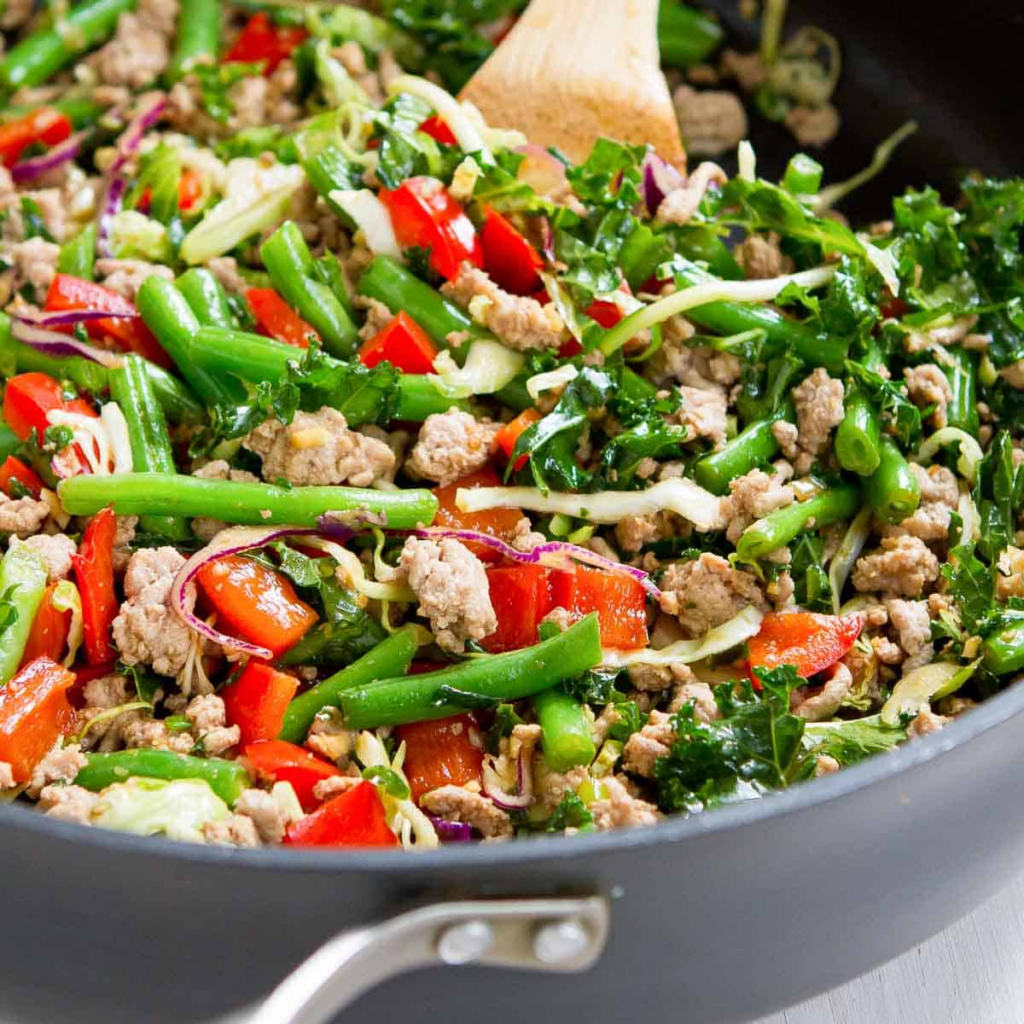
Ground turkey is a versatile option that can be bought in bulk and stored for nutritious, low-carb meals. With 173 calories per 3-ounce serving and 23.3 grams of protein, it’s perfect for making low-carb turkey burgers, meatballs, or topping zucchini noodles.
Chicken Liver: Nutrient-Dense Organ Meat

Organ meats, like chicken liver, are incredibly nutrient-dense. With 142 calories per 3-ounce serving, less than 1 gram of carbs, and 20.8 grams of protein, chicken liver provides essential nutrients such as vitamin A, folate, and B12.
Peanut Butter: Spreadable Protein Goodness
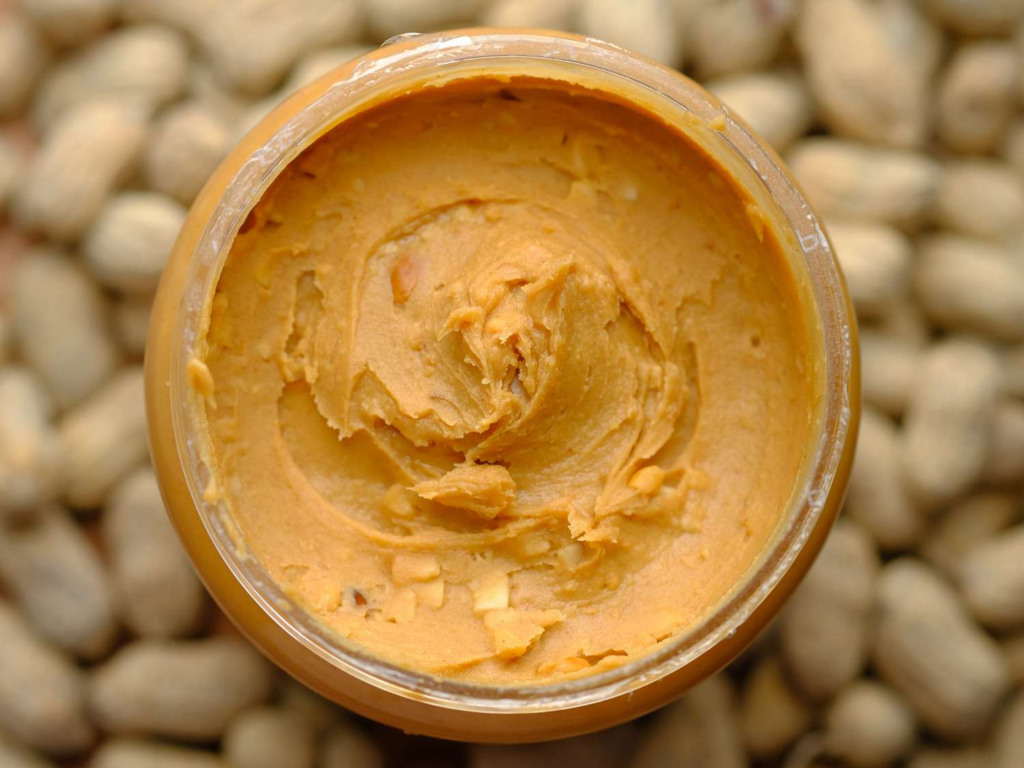
Peanut butter is a delicious spread that pairs well with both sweet and savory ingredients. With 200 calories per 2-tablespoon serving, 8.99 grams of carbs, and 7.01 grams of protein, peanut butter is a popular choice for low-carb snacks and protein shakes.
Ricotta Cheese: Creamy Low-Carb Dairy
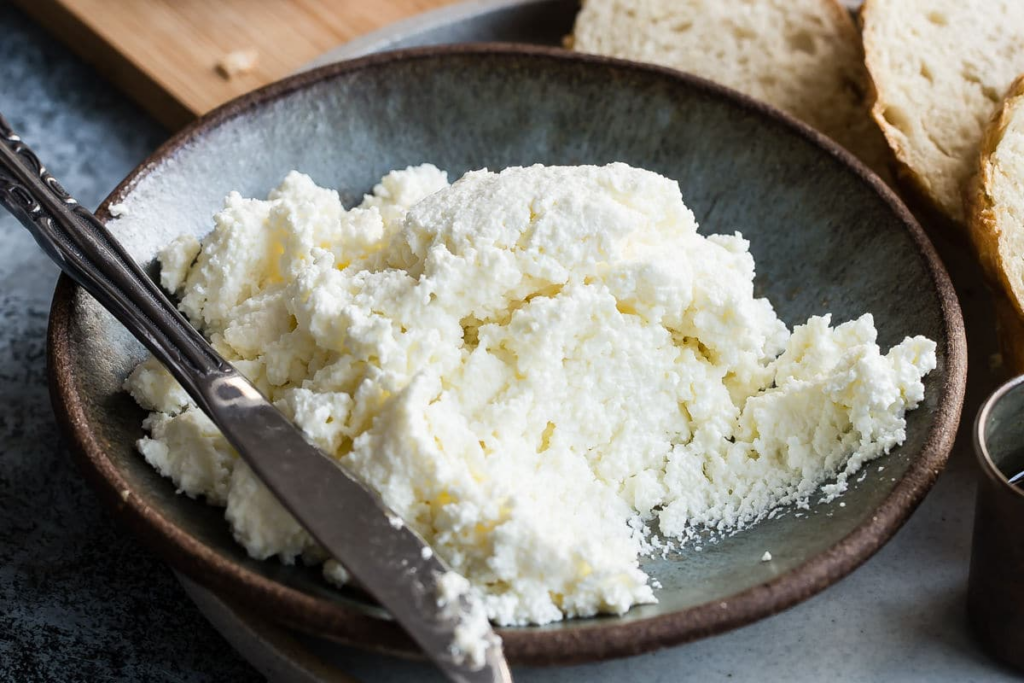
Ricotta cheese is a creamy, low-carb dairy product rich in protein, calcium, selenium, phosphorus, and B vitamins. With 171 calories per half-cup serving and 14.1 grams of protein, ricotta can be added to various dishes, including low-carb desserts.
Tempeh: Firm Texture, Plant-Based Protein

Tempeh, made from fermented soybeans, is a firm-textured, plant-based protein with low carbs. With 195 calories per 100-gram serving, 7.62 grams of carbs, and 19.9 grams of protein, tempeh serves as an excellent meat replacement in high-protein vegan dishes.
Pea Protein: Plant-Based Low-Carb Protein Powder

Pea protein, in the form of unsweetened plant-based protein powders, is a helpful addition to plant-based, low-carb diets. With 120 calories per 33-gram scoop, 1 gram of carbs, and 24 grams of protein, it offers a minimal carb option for boosting protein intake.
Bone Broth: Protein-Rich Stock Alternative
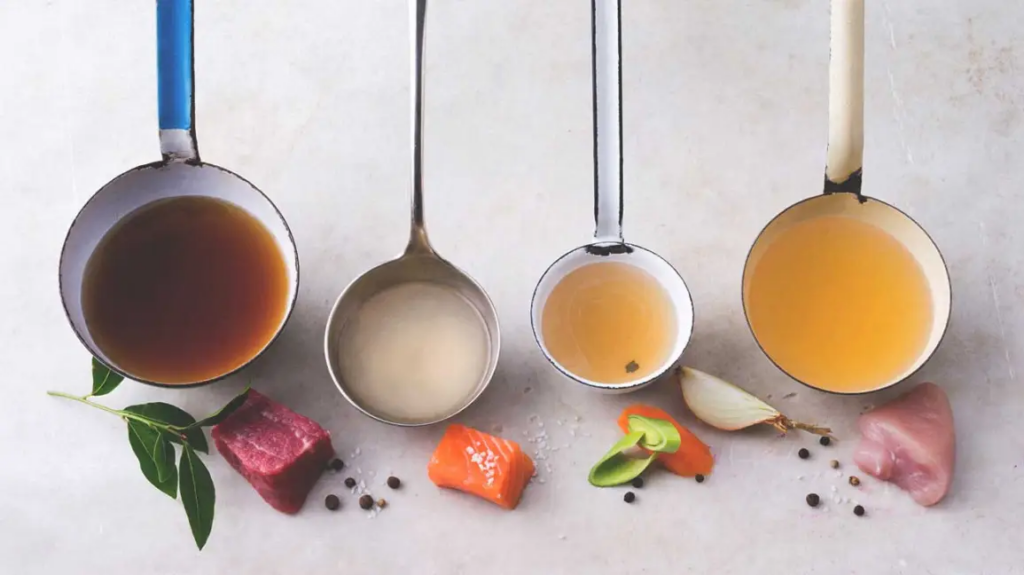
Swapping regular stock for bone broth is an easy way to increase protein content in recipes. With 40 calories per half-cup serving, 1.5 grams of carbs, and 9.5 grams of protein, bone broth is rich in minerals like magnesium, potassium, and calcium.
Parmesan Cheese: Aged, Low-Carb Delight

Parmesan cheese, aged and salty, is high in protein and very low in carbs. With 111 calories per ounce and less than 1 gram of carbs, it’s an ideal topping for soups, eggs, and low-carb recipes.
How Much Protein and Carbs Do You Need?

The optimal intake of macronutrients, including protein and carbs, varies based on factors such as age, body size, and activity level. While the recommended dietary allowance (RDA) for protein is set at 0.8 grams per kg of body weight, active individuals may benefit from a higher intake of 1.2 to 2.0 g/kg per day. Current suggestions for overall health recommend diets providing 45-65% of energy from carbs and 20-35% of energy from protein.
However, individual nutritional needs differ, and research indicates that different ratios of carbs and protein can benefit health in specific conditions. For instance, individuals with conditions like type 2 diabetes, obesity, and fatty liver may find health improvements with a lower carb and higher protein diet.
Consulting with a registered dietitian or healthcare provider is advisable to determine your specific protein and carb requirements, ensuring a personalized and effective approach to your dietary needs.
Conclusion
In conclusion, whether you’re following a low-carb diet or aiming to increase protein intake, the wide variety of high-protein, low-carb foods offers a range of delicious and nutritious options. From the convenience of canned tuna to the versatility of tofu, there are ample choices to suit different dietary preferences. Remember that individual nutritional needs vary, and consulting with a healthcare professional can provide personalized guidance for achieving optimal health through the right balance of protein and carbs. Incorporating these 25 high-protein, low-carb foods into your diet can contribute to overall well-being and support your health and fitness goals.






[…] Explore the top 25 high-protein, low-carb foods for a healthier lifestyle. From nutrient-packed eggs to savory salmon, discover delicious options to elevate your protein intake and support your wellness journey. […]